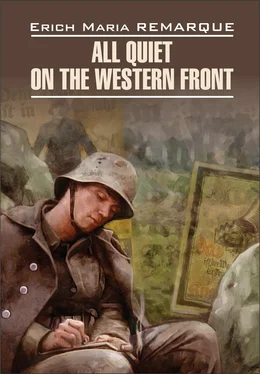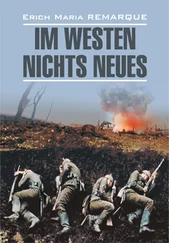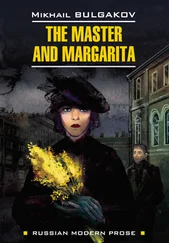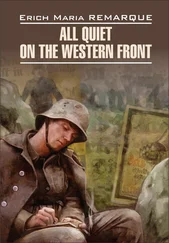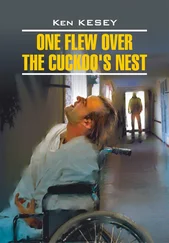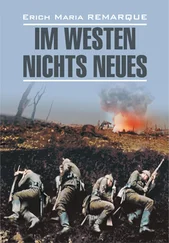He hasn’t seen his wife for two years. She had a baby after he left, and she’s bringing it with her. But LewandowskI has something quite different on his mind. He had been hoping to get permission to leave the hospital when his old woman came, for obvious reasons; it’s all very nice to see someone, but when you get your wife back after such a long time you want something else altogether, if at all possible.
LewandowskI has talked about all this for hours with us, because there are no secrets in the army. Nobody bothers about it, anyway. Those of us who are already allowed out have told him about a few perfect places in the town, gardens and parks where nobody would disturb him. One man even knew of a small room.
But what use is all that now? LewandowskI is confined to bed and miserable. All the joy will go out of his life if he has to miss out on this. We tell him not to worry and promise that we will sort the whole business out somehow.
His wife appears the next afternoon, a little crumpled thing with anxious, darting eyes, like a bird’s, wearing a kind of mantilla with frills and bands. God alone knows where she can have inherited the thing.
She murmurs something quietly, and waits shyly by the door. She is shocked to find that there are six of us in the room.
‘Come on, Marya,’ says Lewandowski, swallowing his Adam’s apple dangerously, ‘you can come on in, nobody’s going to hurt you.’
She walks round the room and shakes hands with each one of us. Then she shows us the baby, which in the meantime has dirtied its nappy. She has a large, beaded bag with her and she takes a clean nappy out of it and neatly changes the child. This gets her over any initial embarrassment, and the two start to talk to each other.
LewandowskI is extremely fidgety and keeps looking across at us miserably with his bulging round eyes.
The time is right. The doctor has done his rounds, and at most a nurse might stick her head into the room. One of us goes outside again nevertheless – to make sure. He comes back in and nods. ‘No sign of man nor beast. [247] No sign of man nor beast – Не видно никого (досл. Нет следов ни человека, ни животного)
Just tell her, Johann, and then get on with it!’
The two of them talk in their own language. The wife looks up, blushing a little and embarrassed. We grin amiably and make dismissive gestures – what is there to worry about? To hell with the proprieties, they were made for different times. Here in bed is Johann LewandowskI the carpenter, a soldier who has been crippled by a bullet, and there is his wife – who knows when he will see her again, he wants to have her and he shall have her, and that’s that.
Two men stand guard at the door to intercept and occupy any nurses that might happen to come past. They reckon to keep watch for about a quarter of an hour.
LewandowskI can only lie on one side, so someone props a couple of pillows against his back. Albert gets the baby to hold, then we all turn round a bit, and the black mantilla disappears under the covers while we play a noisy and vigorous game of cards.
Everything is fine. I’m holding a damn good hand with all the high cards in clubs which has just about beaten everyone. With all this going on we have almost forgotten Lewandowski. After a time the baby begins to howl, although Albert is rocking it backwards and forwards despairingly. There is a bit of rustling and crackling and when we glance up, as if we were just doing so casually, we see that the child has the bottle in its mouth and is already back with its mother. It all worked.
We now feel like one big family, the woman is bright and cheerful, and LewandowskI lies there sweating and beaming.
He unpacks the beaded bag, and out come a couple of good sausages. LewandowskI takes the knife as if it were a bunch of flowers and saws the meat into chunks. He makes a sweeping gesture of invitation towards us all, and his little crumpled wife moves from one of us to the next, and laughs, and shares out the meat – she looks positively pretty as she does so. We call her ‘mother’ and she likes that, and plumps our pillows up for us.
After a few weeks I have to go to physiotherapy every morning. There they strap up my leg and exercise it. My arm has long since healed.
New hospital transport trains arrive from the front. The bandages are not made out of cloth any more, they are just white crepe paper. There is too much of a shortage of proper bandage material out there.
Albert’s stump heals well. The wound has practically closed. In a few weeks’ time he will be sent to be fitted for an artificial leg. He still doesn’t talk a lot, and he’s much more serious than he was before. Often he breaks off in mid-conversation and just stares into the distance. If he hadn’t been with the rest of us he’d have put an end to it long ago.
But now he is over the worst. Sometimes he even watches while we play cards.
I’m given convalescent leave.
My mother doesn’t want to let me go again. She is so weak. It is all even worse than last time.
Then I’m recalled by my regiment, and go back to the front. Leaving my friend Albert Kropp is hard. But in the army you get used to things like that.
We’ve stopped counting the weeks. It was winter when I arrived, and whenever a shell hit the ground, the frozen clumps of earth it sent up were almost as dangerous as the shrapnel. Now the trees are green again. Our lives move between base camp and front line. To an extent we have become used to it. War is another cause of death, like cancer or tuberculosis or influenza or dysentery. The fatalities are just much more numerous, and more horrible.
Our thoughts have turned to clay, they are moulded by the variation in the days [248] they are moulded by the variation in the days – сменяющие друг друга дни месят ее (о глине)
– good, when we are in camp, and deadened when we are under fire. No man’s land is outside us and inside us too.
Everyone feels the same, not just us out here – earlier values don’t count any longer, and nobody really knows how things used to be. The differences brought about by education and upbringing have been almost completely blurred and are now barely recognizable. Sometimes those differences are an advantage in making the most of a given situation; but they have their disadvantages as well, because they give rise to inhibitions which then have to be overcome. It is as if we were once coins from various different countries; we’ve been melted down, and now we have all been restruck so that we are all the same. If you want to pick out differences you have to be able to examine the basic material very closely. We are soldiers, and only as an afterthought and in a strange and shamefaced way are we still individual human beings.
It is a brotherhood on a large scale, in which elements of the good fellowship you get in folk songs, of the solidarity you find among convicts, and of the desperate clinging together of those condemned to die, are all combined in some strange way to give a form of life which, in the midst of all the danger, rises above the tension and the abandonment of death, and leads to a fleeting and quite dispassionate grasping at whatever time we can gain. It is heroic and banal, if you really think about it – but who does?
It is this attitude that makes Tjaden gulp down his pea-and-ham soup as fast as he can when an enemy attack has been reported, because he doesn’t know whether he will still be alive in an hour’s time. We have had long discussions on whether this is the right thing to do or not. Kat thinks it isn’t, because he says we have to reckon with the possibility of a stomach wound, which is much more dangerous on a full belly than on an empty one.
Читать дальше
Конец ознакомительного отрывка
Купить книгу
